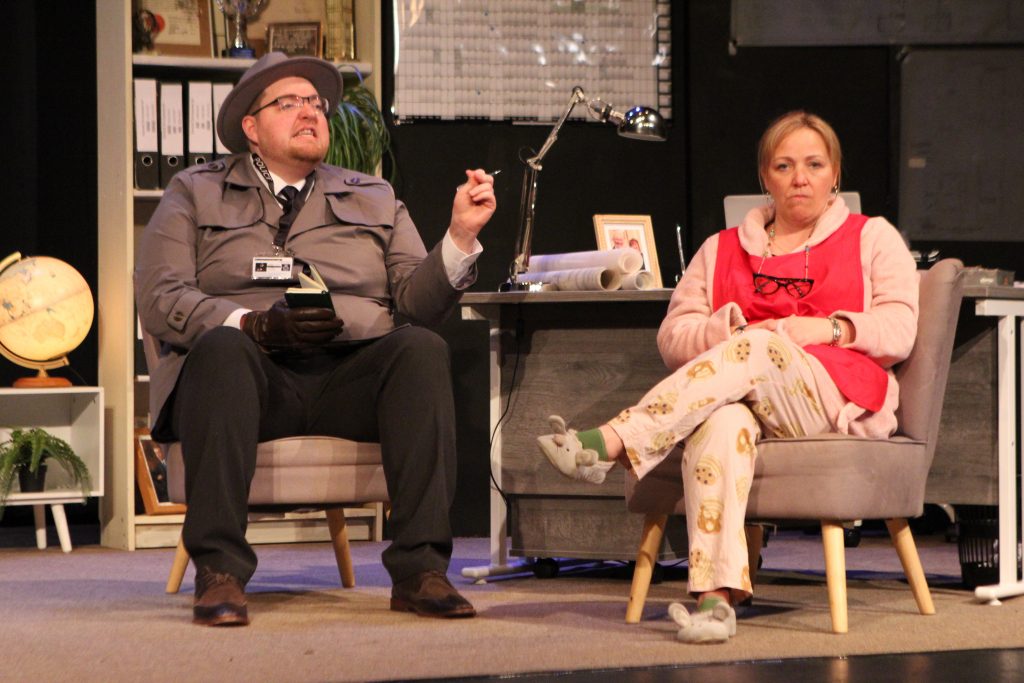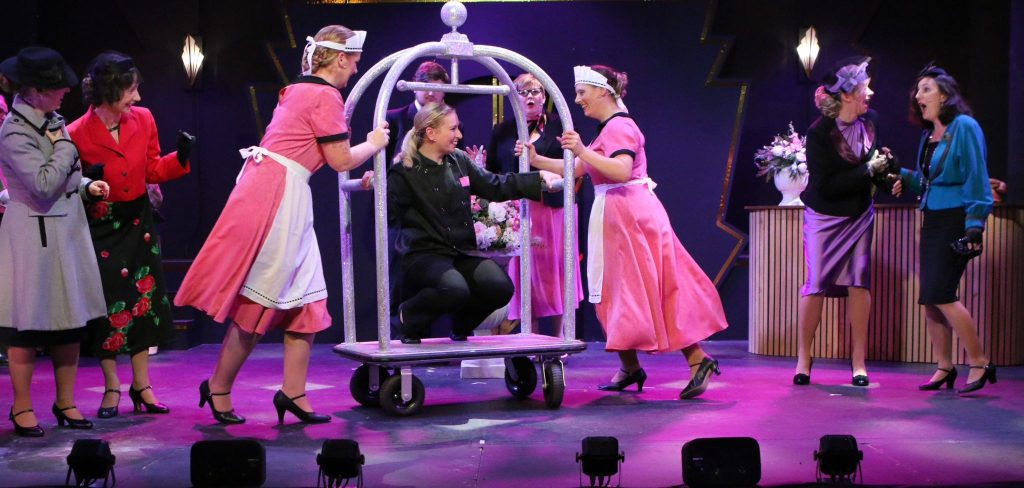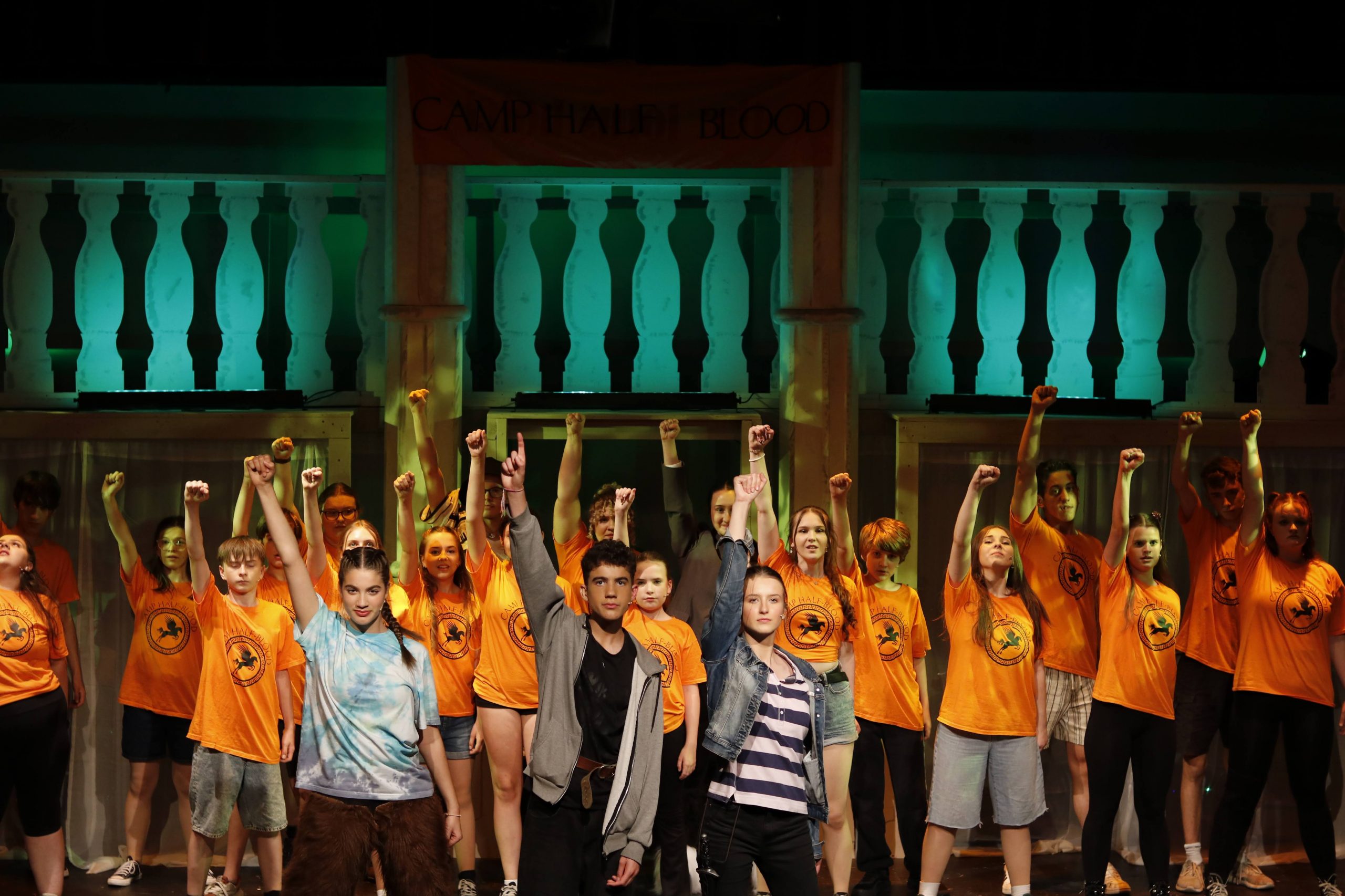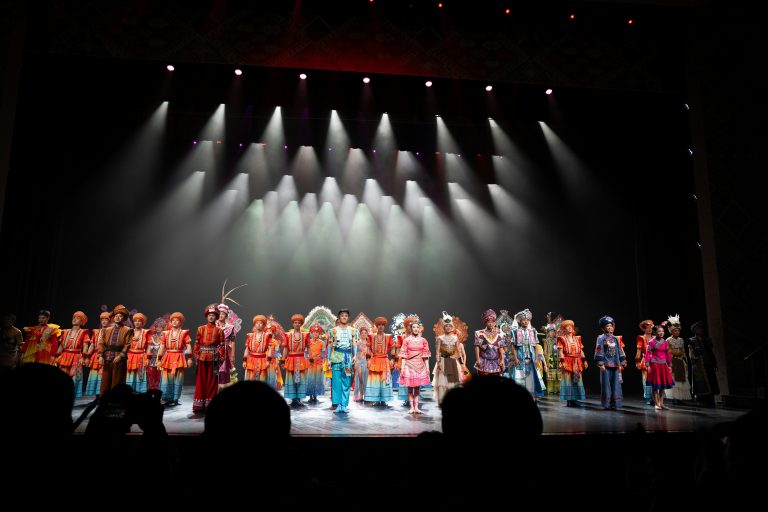Making Am Dram a Supportive Space
I love doing theatre. I love the people I’ve met through it, the late-night rehearsals that descend into laughter, and the rush of opening night when everything suddenly clicks. For me, amateur theatre is one of the most rewarding hobbies out there, a space where you can build confidence, make lifelong friends, and do something you genuinely love. I’m very blessed to have worked with three wonderfully supportive groups: Erewash Musical Society, Arcade Players and Encore Performing Arts. All three groups have my full recommendation for people looking to perform in a safe, supportive environment.

What it’s not, at least for me, is a second job. It’s not a competitive sport, and it’s certainly not about trophies, politics, or who gets cast in what. Somewhere along the line, some of us seem to have forgotten that. We’re not professionals under contract; we’re volunteers giving our time, energy, and passion to keep the magic of live performance alive. When people start to see amateur theatre as this mythical (and competitive) pathway into the professional world, it can start to feel insidious.
Amateur theatre should be fun. It should be about collaboration, not comparison. Yet lately, I’ve noticed more pressure creeping into our community, from within ourselves, and sometimes from each other, to perform perfectly, to outshine, to prove something. And that’s a shame, because it takes the heart out of what makes this world so special.
The Reality of Am Dram Pressure
Nobody joins an amateur dramatics group expecting stress. We sign up because we love performing, because we miss being part of something creative, or simply because we want to meet new friends. But it’s easy for that enthusiasm to get tangled up in pressure once rehearsals begin.
There’s the pressure to get cast, to land a good part, or simply to prove that you deserve to be there. There’s the pressure to be off-book early, to juggle rehearsals with work, family, and everything else life throws at us. Then there’s the pressure that comes when ticket sales aren’t where we hoped, and everyone starts to feel the strain.
Social media can add to it, too. You see other societies sharing stunning production photos or glowing reviews, and suddenly it feels like everyone else is doing better. It’s not jealousy, it’s insecurity. Most of us care deeply about doing well, and when you care that much, it’s hard not to compare.
But the thing about amateur theatre is that we’re all in it together. Every show, every cast, every crew is facing the same challenges, trying to balance their passion with real life, often on very limited budgets and time. It’s not easy, especially now, when the cost-of-living crisis is making it harder to fill seats and harder still for some people to even afford to take part.
Those pressures shouldn’t divide us; they should remind us how much we all have in common. Local theatre groups should support one another and lift each other up. And the same goes for the individuals involved. Ultimately, we’re all getting on stage and giving our absolute best. And we do it without a paycheck.
The Cost of Living and the Struggle to Fill Seats
It’s impossible to ignore how much tougher things have become for amateur theatre groups. Ticket sales that once felt steady now feel uncertain. Audiences are more cautious with their spending, and for many, a night at the theatre has become an occasional treat rather than a regular outing.
Behind the scenes, societies are feeling the pinch too. Hiring venues, buying or making costumes, printing posters, it all adds up. And we’re doing it for the love of theatre. So when we see empty seats or struggle to cover costs, it can be disheartening.
I think this is where a lot of the hidden pressure comes from. When resources are tight and shows are expensive to stage, it’s easy for committees and performers alike to feel that everything is riding on each production. We start worrying not just about our own performance, but about whether we’re “good enough” to bring audiences back.
But these challenges aren’t unique to one group. They affect everyone. And that’s exactly why it’s so important we start seeing each other as allies, not competitors. When one local show succeeds, it helps remind the whole community that theatre is worth turning out for. That’s not rivalry, it’s teamwork.
Support, Not Competition

Somewhere along the way, parts of the amateur theatre world have started to feel a bit competitive, and I don’t just mean friendly rivalry. I’ve heard of societies quietly comparing audience numbers, performance quality, or who got which lead role. Groups refusing to attend certain productions because they see another theatre group as “not good enough”. Mean comments when a particular theatre group gets a desirable show licence. Some of it is understandable; we all want to do our best. But when that competitive energy takes over, it risks eroding the very thing that makes amateur theatre so special. It loses that sense of community.
The truth is, no one wins when we treat theatre like a contest. Every society, every performer, and every backstage team member is working incredibly hard to keep the arts alive in their town. We all know how much time, effort, and emotion go into every show, from the first read-through to the final curtain call.
That’s why I’ve always believed we should be each other’s biggest supporters, not rivals. Go and see other groups’ shows. Share their posts. Celebrate their successes. Because when one of us succeeds, it lifts the whole scene. A thriving, supportive theatre community brings in bigger audiences, more collaboration, and a much stronger reputation for local arts overall.
This is also one of the main reasons I choose to review as well as perform. I don’t write reviews to criticise or pick apart. I write them to celebrate, to shine a light on the incredible talent and dedication that exists in our local theatre world. When I sit in the audience, I’m watching as someone who understands what it’s like to stand on that stage: the nerves, the effort, the love that goes into every performance. My goal is never to tear down, but to lift people up. And when you review from a performer’s perspective, you understand the impact of taking care to acknowledge the work of everyone involved. It’s absolutely fine to acknowledge mistakes happen, but ultimately, amateur theatre should never be held to the same standards as a professional production. These people are working full-time whilst rehearsing. Give them some slack, please.
Because when all’s said and done, that’s what we should all be doing, lifting each other up and celebrating people. Amateur theatre isn’t about perfection. It’s about people coming together to create something magical, even if it’s just for a few nights. And that’s what’s worth celebrating.
A Kinder Theatre Culture
At its heart, amateur theatre is about connection, not competition. It’s about people coming together to tell stories, to make each other laugh, and to bring a bit of joy to their audiences. Every person who steps into a rehearsal room, paints a set, plays in the band, or sells a raffle ticket is part of something bigger than themselves.
I primarily promote local theatre because I want it to continue. It’s financially accessible in a world where professional theatre prices continue to rise. It keeps communities going. Since 2020, society has found itself increasingly isolated. Hobbies like amateur theatre allow people to maintain social connections, which is fundamentally good for their health.
If we can hold onto that, we can make our community stronger. Instead of comparing, let’s collaborate. Instead of criticising, let’s encourage. Go and watch other societies’ shows. Leave a positive comment online. Offer to help backstage or front of house, or just say something kind after a performance. You never know how much that might mean to someone who’s feeling unsure of themselves.
Theatre isn’t easy, not in the professional world, and certainly not in the amateur one, but it is worth it. Every show that goes ahead, every audience member who walks through the door, keeps local theatre alive. And that only happens when we support one another.
So let’s make a conscious choice to build a culture of support. Because at the end of the day, when the lights go down and the applause fades, what really lasts isn’t the trophy or the review, it’s the friendships, the memories, and the shared love of the stage.



